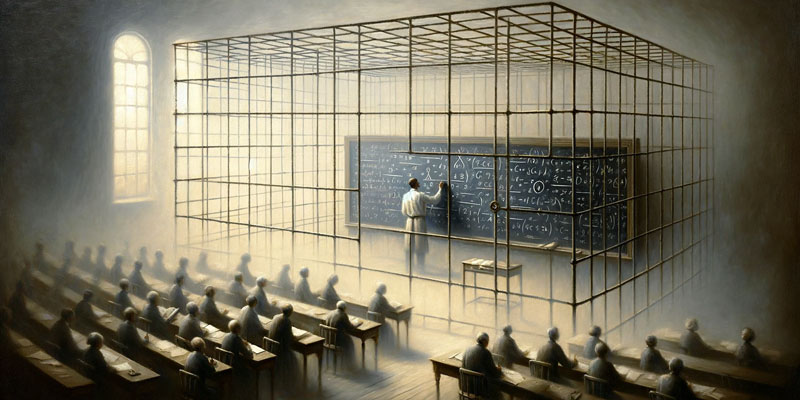
Freeing teachers means freeing them from an inapt industrial employment model.
Brandon Busteed’s argument in Forbes well taken:
U.S. teachers are dead last among all occupational groups and professions in feeling their opinions count at work, that their supervisor creates an open and trusting environment and that they are treated with respect each day. Teachers are also the highest of all professions in experiencing burn-out and stress. And it’s no wonder why half of all teachers are currently looking for a new job and missing 2.3 million days of work each year. These are sickening data and indeed suggest that the school workplace is making teachers sick. …
We need to free our teachers to do what they do best – to teach and inspire. Well-intentioned yet failed education policies that have overemphasized standardized testing and driven national and state-level ‘standardized’ curriculum have led to teacher disempowerment. These efforts have left us with an excessive number of school days being devoted to test taking and preparation while also wresting control over classroom time and creativity in lesson planning from teachers. We have effectively rendered teachers increasingly powerless at the same time we expect them to do more than ever.
Teachers (including those in my family) will be quick to offer an “amen” to that, as they should, but they should pause and consider the points without the standard battle lines that have been drawn in their minds. Isn’t providing teachers a voice something that labor unions are supposed to have been doing for decades? Does it ever seem like the type of work environment that unionization creates might contribute to a lack of “open and trusting environment” with management?
I’ve watched the interaction of teachers unions with school administrators (and members of the community, for that matter), and I have to say that union organizers undeniably and deliberately foster a sense of grievance and conflict. They’ve also created the environment in which parents and community leaders rightfully demand standardized testing. Professionals who are free to innovate and “inspire” must also be subject to accountability when they fail.
Busteed glosses over the single-most-consequential choice in all of education: Do teachers want to be freed with autonomy, or do they want to be shielded from consequences? You can’t have the benefits of autonomy along with the protection of “solidarity.” Either they’re unique and inspiring individuals who can be trusted and judged by their own performance, or they’re replaceable members of a union who can uniformly be covered by a detailed labor agreement that dictates everything from stipends for extra work to the number of minutes allocated for planning.
A system that doesn’t demand this choice be made is one that ceases to function for the education of children and focuses on the employment of adults, and I agree with Busteed that a system in which the choice is uniformity will not work in the long run. That leaves only one conscionable choice.
Featured image by Justin Katz using Dall-E 3.

